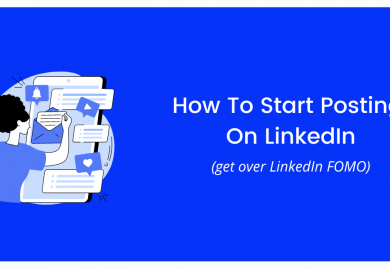Marketing is a Full-Time Job

Do you have a marketing function within your business? If so, what does it look like? A marketing team can be anything from outsourcing to an agency and/or freelancers, to a small in-house team or a large, multi-layered department working within the business.
The thing is, marketing is always a good investment for any business – particularly recruitment companies. But, what we’re seeing recently is an increase in job titles such as “Marketing & Admin Assistant” and “Marketing & Office Manager”. The more we see job titles like this on LinkedIn, the more we want to speak to business owners about why marketing needs and deserves a full-time employee. It’s kind of like when football teams have player-managers; yes, they’re probably good at both, but are they spending enough time working on one or the other? Unlikely.
Why marketing is a full-time job
Marketing covers more than any non-marketer could ever comprehend. Traditionally, marketing professionals used to be responsible for offline tasks such as direct mail, marketing collateral, printed ads, printed articles and event management. Whilst these responsibilities aren’t completely dead, they’re nowhere near as important as their newer, shinier cousin – digital marketing.
There is a reason why there are so many digital marketing professionals in the UK – the sector itself is constantly in flux and evolving, meaning more roles are constantly being created. Ten years ago we mainly had Marketing Assistants, Marketing Executives and Marketing Managers – now we have everything from CRO Leads and SEO Specialists to Copywriters, Brand Ambassadors and everything in between.
One main thing business owners need to know is that marketing is more than posting a blog on your website, or scheduling tweets and Facebook posts. Marketing can cover the following basics (along with a multitude of additional areas):
- Marketing strategy - developing, executing and monitoring an overall marketing strategy that reflects and supports the overall business goals
- Content production - writing blogs, website content, social media content, videos, email, podcasts, webinars, infographics, whitepapers etc
- Email marketing - overseeing the overall management of all company email campaigns, including segmenting data lists and creating the emails
- Social media strategy and management - creating a social media strategy to maximise reach and engagement on each individual channel
- Website management - overall website maintenance, including updating web pages, liaising with designers and developers for design updates, monitoring contact made through the website, fixing technical errors, creating redirects, monitoring performance in GA
- Reporting - producing weekly or monthly reports on the performance of all of the above
And this is just the beginning. Whilst one marketer in the early stages of their career would be able to manage all of the above on their own (at a push), when you consider the numerous customer personas and target audiences involved, it is clear that not all marketing can be done alone, or even by a small team.
Roles and responsibilities
There are countless job titles within digital marketing – all you have to do is type “marketing” or “digital” into the search bar on LinkedIn, and you’ll see what we mean. When it comes to the wireframe of a marketer’s roles and responsibilities, it can look like the following:
- Brand - defining what your business looks like, what it stands for, what you do as a company and what you value. This gives clients, candidates and employees an idea of who it is they are working with
- Website - ensuring the site is performing as well as it can on SERPs, monitoring SEO and CRO
- Campaign management - creating, executing and analysing marketing campaigns, from small-scale social media campaigns to large-scale omnichannel campaigns (e.g. email)
- Content - creating optimised content for your website and social channels, ensuring a balance between informative content and SEO
- Social media - managing strategies for each channel and engaging with audiences on LinkedIn, Twitter, Facebook, Instagram and any other platforms your business uses, both organic and paid
- Customer and market research - defining customer personas and target audiences in order to tailor content accordingly to best position your services
- Liaising with vendors - working with freelancers and agencies, agreeing costs, briefing work and signing off on projects
- Internal comms - ensuring all employees are informed on any business news, as well as encouraging them to champion the brand and share any marketing content online
Roles such as Marketing Assistants, Marketing Executives, Marketing Managers and Marketing Directors have been long-standing, and now we see far more roles emerging. Everything from Content Leads and Videographers to CRO Specialists and PPC Managers are commonplace in marketing teams, both in-house and within agencies.
No matter how big or small your business is, marketing should always be its own thing. Not only can it boost your brand, but it can generate an enormous amount of revenue if done properly. So, if you have an employee who currently looks after your marketing along with another role with additional responsibilities, have a chat with them. See which role they prefer, and then recruit someone else for the other position. When you hire the right person, the ROI is always worth it.
Recent Posts
Categories
Check this out
2023 updates and tips to get the maximum reach of your posts
Passive Aggressive Marketing T-Shirts, All For Charity
Learn how a startup is tackling marketing
Featured Posts
Resilience and risk-taking in recruitment: a conversation with Will Pearce
Paiger acquires The Lonely Marketers
The power of the personal brand in recruitment
Archives
- September 2023
- June 2023
- May 2023
- April 2023
- March 2023
- February 2023
- January 2023
- December 2022
- November 2022
- October 2022
- September 2022
- August 2022
- July 2022
- June 2022
- May 2022
- April 2022
- March 2022
- February 2022
- January 2022
- December 2021
- November 2021
- October 2021
- September 2021
- August 2021
- July 2021
- June 2021
- May 2021
- April 2021
- March 2021
- February 2021
- January 2021
- December 2020
- November 2020









